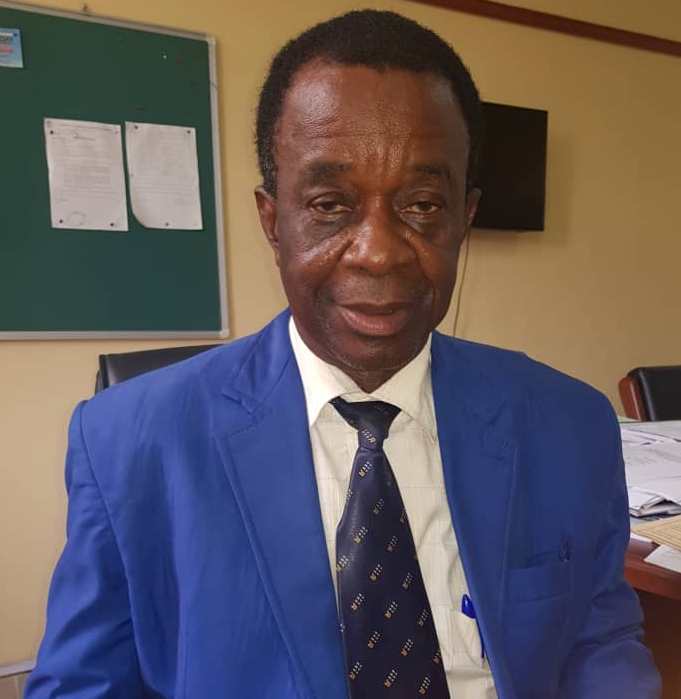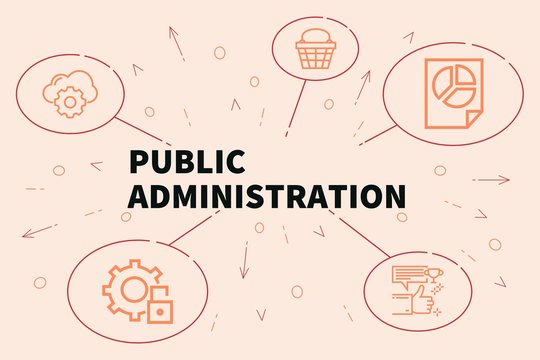
Prof. Stan O.Aibieyi (Head of Department, Public Administration)
SHORT HISTORY OF THE DEPARTMENT
The Department of Public Administration was a part of the former Department of Political Science and Public Administration. It came into being in November 2014 following the decision of the National Universities Commission to abolish academic Departments with double barrel names such as a Department of Political Science and Public Administration.
The Department at the moment runs the Full-Time B.Sc., M.Sc. and Ph.D. programmes in Public Administration.
Organization structure
The Department is administered following the laid down University guidelines. It is headed by a Head of Department appointed by the Vice-Chancellor annually unless the appointee is a professor in which case he/she is allowed to serve a three year term subject to renewal. The Head of Department is appointed in acting capacity if he/she is a Senior Lecturer or an Associate Professor. The current Head of Department is an Associate Professor.
The Head of Department is the Head of Administration. The non-academic staff constitutes the secretarial work force of the Department. The Department Secretary coordinates their activities.
Involvement of staff in the decision-making process and in general administration.
Through Staff meetings, the Head of Department administers the Department following the Committee system. All decisions pertaining to the administration of the Department are taken at the meetings of the various committees. Issues relating to various committees are referred to them and their recommendations are forwarded to the Departmental Board of Studies for implementation.
Each academic level is assigned an adviser who liaises with all students in the respective levels. In addition to the level advisers, we also have the Departmental Examination Officer and the Department Admission Officer. Indeed the decision making process is fully decentralized with the Head of Department playing the role of coordinator and executive officer for implementation.
Policy and Practice on Staff Development:
All members of academic staff are expected to attend conferences annually, most especially those of their professional associations. Furthermore, junior colleagues (assistant lecturers and graduate assistants) are obliged to go for further studies through the well- established in-service training programme. At the moment, all graduate assistant and assistant lecturers are pursuing higher degree programmes. Training leave is granted as demanded and with respect to non-academic staff, matters relating to practice and policy on staff development are handled by the University Registry.
Staff promotion:
All members of academic staff are routinely due for promotion every three (3) years provided they meet the criteria laid down by the University Appointment and Promotion Board. The promotion of non-academic staff is handled by the Registry’s Department and it is done every four (4) years.
Student’s Welfare:
Handling of academic grievances
Due process is normally followed. Students report their grievances to their course advisers at the first instance. If the grievances require action at a higher level, the students are required to make a formal application to the appropriate quarter through the Head of Department. All grievances are settled through this approach. In addition to course advisers, students also bring their grievances to individual lecturers in charge of various courses, supervisors, coordinators, the Departmental Secretary and the Head of Department. The time-table officer resolves grievances relating to examination and lecture time-table. The Student Affairs Division is also very actively involved in grievances management especially in matters relating to security, unionism and discipline
Student academic advising
Different course advisers are assigned to different levels. Such advisers counsel students on course registration, elective, carryovers, credit loads and transfers. The departmental time- table officer advises students on lecture schedules and resolves all matters pertaining to lecture and examination time tables. On issues relating to clearance, the Departmental Clearance Officer advises students on requirements and procedures for the clearance at the Faculty level and the University Registry. On registration, the Departmental registration officer guides students on how to fill out the appropriate forms. In addition to the above, programme coordinators, individual students, supervisors are involved in day to day academic advisory activities.
EXAMINATION
Setting, Conduct, Evaluation Schemes, Moderation Schemes-Internal and External for Degree Examinations and the Issuances of Results
The Head of Department is the Chief Examination Officer of the Department following Senate guidelines. Lecturers set the examination questions for courses they taught and submit to the Chief Examination Officer (HOD) along with their marking schemes. It is the duty of Chief Examination Officer to ensure that the questions are derived from the course outline and what lecturer taught. He/she prepares the question papers usually on the day of examination. Final year examinations are normally moderated by appointed external examiners. The external examiner also reads the research projects of all final year students and vets all answers for each paper before final year results are prepared. Results are released when modalities are completed
Academic Atmosphere
It is compulsory for all students to register with and use the library and show evidence of same. This is to ensure that students do not restrict themselves to their lecturer’s notes. In this respect, the sales of handout have been effectively stamped out in line with Senate directive.
Also, the department has a long tradition of graduate seminars which all postgraduate students are mandated to attend. Associations like Social Science Students’ Associations and Public Administration Student Association of Nigeria (PASAN) are promoted to increase a social science culture, while inter departmental core and elective courses are required by all students.
ACADEMIC CONTENT
Programme Title: B.Sc. Public Administration
Philosophy and Objective:
The Purpose of this programme is to provide training for upcoming students and to be an internationally renowned centre of scholarly research, teaching, discourse and administration.
Objectives
The main objectives of a degree in Public Administration are:
i. To develop in students the ability to apply the knowledge to the resolution of Administrative and other Social problems.
ii. Provide the students with the skill-base from which they can proceed to higher studies in public administration
iii. To imbue in the students a deep appreciation of the administrative dynamics of the society and the impact of this antidote on social-economic development and social wellbeing.
iv. To provide a solid foundation of Knowledge about the workings of society and its institutions and to further develop the constructive use of such knowledge.
v. To stimulate the students intellectually through the programme, in such a way that they appreciate and proffer solutions to social problems and how to solve them.
Admission Requirements:
In addition to the normal University entry requirements, the following requirements apply specifically to the Department of Public Administration:
(i) Admission requirements for the four year (B.Sc. Public Administration) full-time degree programme. Candidates seeking admission into this programme should possess any of the following qualifications.
(a) At least five ordinary level credit passes in WAEC, SSCE, NECO, or any of their recognized equivalents at not more than two sittings, English and Mathematics inclusive.
(b) At least five merit level passes in the Teacher’s Grade Two Certificate Examination (T.C.II).In both cases, the subjects must include English Language, Mathematics, Government/ History, Economics/Commerce or both and any other subject.
(ii) Admission requirements for the three-year degree programme (Direct Entry). In addition to (a) and (b) above, candidates who possess any of the following qualifications may be considered for admission into the three year programme.
{i} At least two Advanced Level passes at the General Certificate of Education (GCE) or the Higher School Certificate (HSC) or any of their recognized equivalent at not more than two sittings. One of the two subjects should be Government or History.
{ii} At least a credit level pass in the University of Benin Diploma in Social Work, Public Administration and Law only.
{iii} Diploma with at least Upper Credit level pass from any other recognized University in Diploma in Social Work and Law.
{iv} Ordinary National Diploma (OND) with at least Upper Credit level pass in a relevant discipline from any recognized Polytechnic or College of Technology.
{v} Higher National Diploma (HND) with at least Lower Credit level pass in any relevant discipline from any recognized Polytechnic or College of Technology.
{vi} Nigeria Certificate of Education (NCE) with at least a Credit level pass in a Social Science subject from a recognized College of Education. In addition, such a candidate should have at least an Overall merit level pass.
{vii} A pass in the Associate Chartered Institute of Secretaries and Administrator (ACIS) Part I or Associate Institute of Bankers (AIB) Part I or Associate of Chartered Institute of Insurance (ACII) Part I.
COURSE CONTENT SPECIFICATIONS/SYLLABUS OF ALL COURSES IN THE PROGRAMME/SUBDISCIPLINE/DISCIPLINE:
Students admitted into this department either through UTME or Direct Entry are required to take the following courses for a period of 4 years or less depending on the mode of entry. Check our structured and outlined courses for various levels. Each course carries 3 credits except GST & CED with 2 credits each.
SCHEDULE OF COURSES FOR THE FOUR-YEAR AND THREE-YEAR B.Sc. FULL-TIME DEGREE PROGRAMME
All students admitted into this Department either through UTME or Direct Entry are required to take the following schedule of courses for a period of four or three years depending on the mode of entry.
